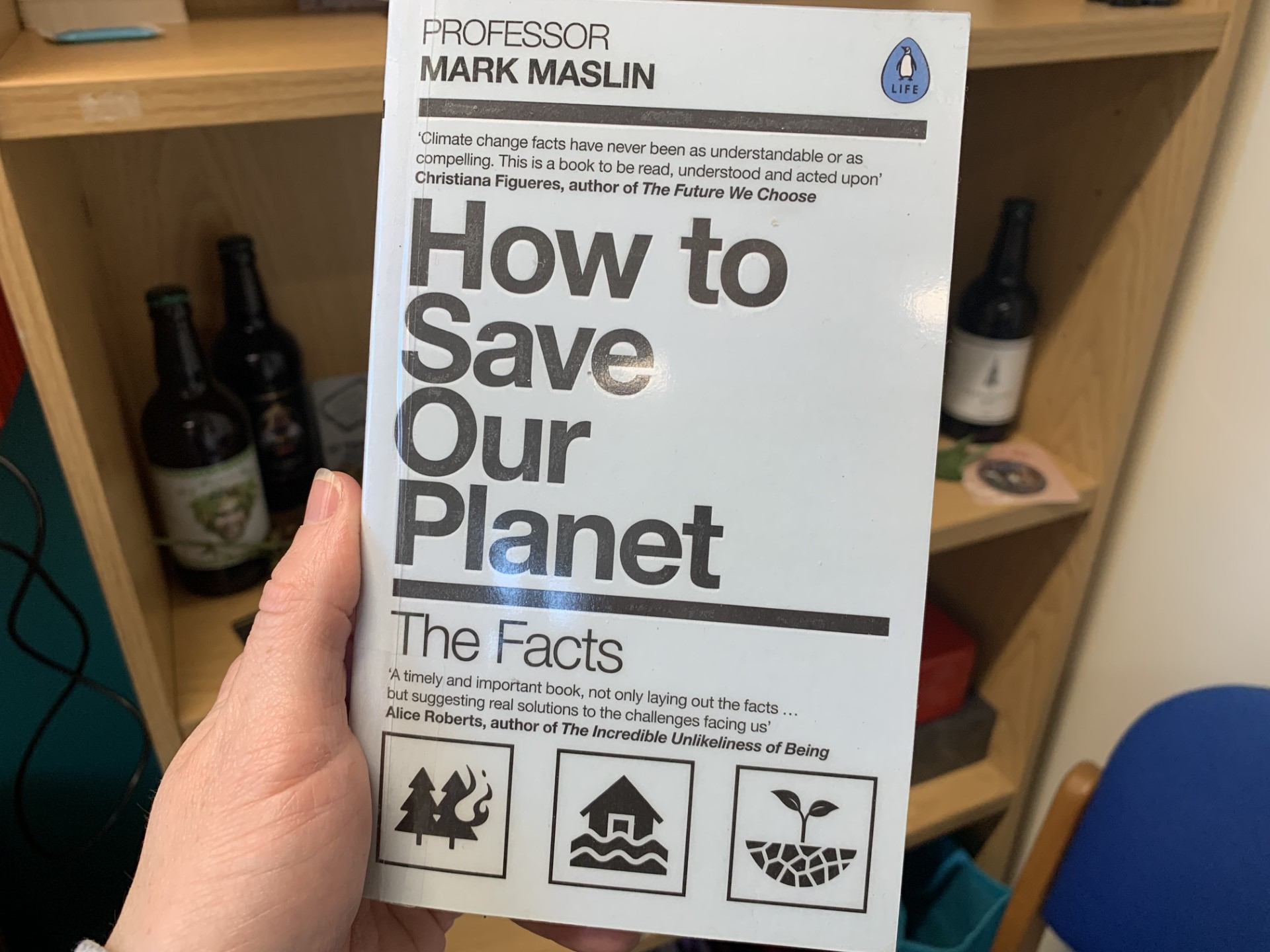This book is different to any that I’ve read before, in that it is not comprised of long paragraphs joining together the author’s ideas and thoughts about a particular topic. Rather, it is a list of facts – one after the other – with no expounding upon or reworking, just pure scientific fact that helps to explain climate change.
Now that might sound like a horribly boring type of book but stay with me here; it’s actually what makes the book so readable. Each sentence carries its own citation, each page has no more than 10 sentences, and each chapter is made up of around 10 pages. I was propelled through the book, which helped me feel like I was making progress, yet it’s written in such a way that I could dip in and out when I had a spare 5 minutes.
Maslin takes you on a journey from the beginning of time to the present day, providing a detailed yet easy-to-understand context for anybody – without needing specialist knowledge in quantum physics or evolutionary biology. From there, he goes on to explain how the problem of climate change emerged (over a relatively short period of time) and offers hopeful solutions and scenarios of what we can do to help the planet today.
3 reasons to read this book:
- It will give you a helpful introduction to the history of humanity (interesting and useful in its own right) and explain how we arrived at the climate crisis we’re in today
- It will give you some fun facts to impress your friends and family (did you know: many people to this day still have the enzyme ‘chitinase’ that allows them to digest insects, like our mammal ancestors)
- It will motivate you to climate action – whether through personal lifestyle choices, educating others, or lobbying governments and corporations to make environmental changes
I recommend this book to anyone who is new to climate science, or wanting to refresh their knowledge (maybe you’ve been on the Carbon Literacy Training at CCCU but have forgotten some of the details). It is available to borrow from Augustine House – check out the library search page to find out more.
By Laura Hackett, Senior Research Fellow and Climate Education & Carbon Reduction Officer
 Sustainability
Sustainability Bethany Climpson
Bethany Climpson 645
645


